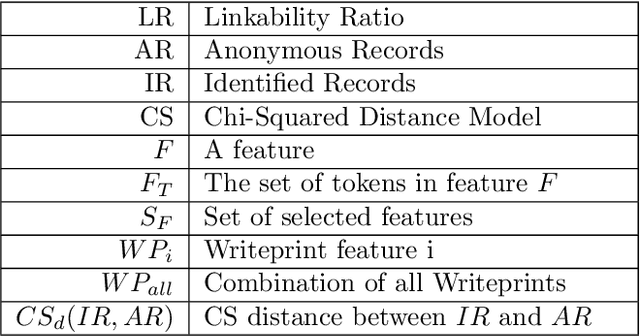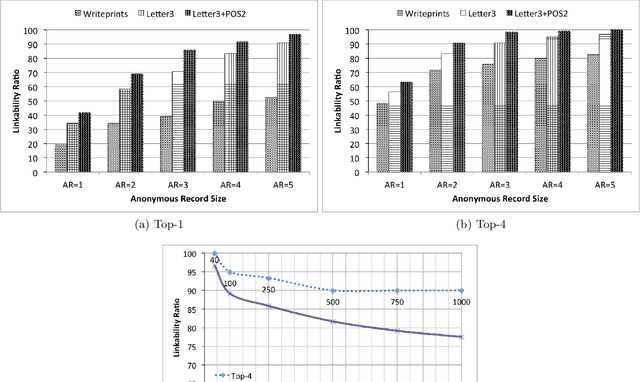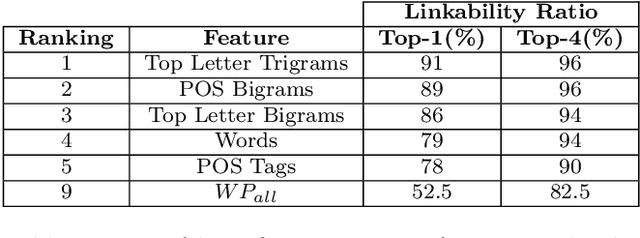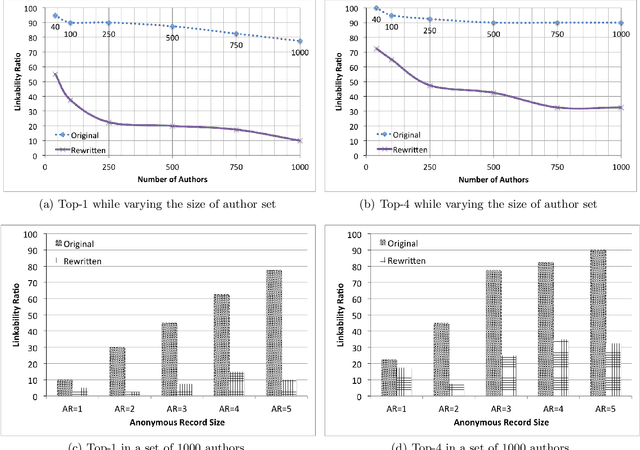Fighting Authorship Linkability with Crowdsourcing
Paper and Code
May 19, 2014



Massive amounts of contributed content -- including traditional literature, blogs, music, videos, reviews and tweets -- are available on the Internet today, with authors numbering in many millions. Textual information, such as product or service reviews, is an important and increasingly popular type of content that is being used as a foundation of many trendy community-based reviewing sites, such as TripAdvisor and Yelp. Some recent results have shown that, due partly to their specialized/topical nature, sets of reviews authored by the same person are readily linkable based on simple stylometric features. In practice, this means that individuals who author more than a few reviews under different accounts (whether within one site or across multiple sites) can be linked, which represents a significant loss of privacy. In this paper, we start by showing that the problem is actually worse than previously believed. We then explore ways to mitigate authorship linkability in community-based reviewing. We first attempt to harness the global power of crowdsourcing by engaging random strangers into the process of re-writing reviews. As our empirical results (obtained from Amazon Mechanical Turk) clearly demonstrate, crowdsourcing yields impressively sensible reviews that reflect sufficiently different stylometric characteristics such that prior stylometric linkability techniques become largely ineffective. We also consider using machine translation to automatically re-write reviews. Contrary to what was previously believed, our results show that translation decreases authorship linkability as the number of intermediate languages grows. Finally, we explore the combination of crowdsourcing and machine translation and report on the results.
 Add to Chrome
Add to Chrome Add to Firefox
Add to Firefox Add to Edge
Add to Edge